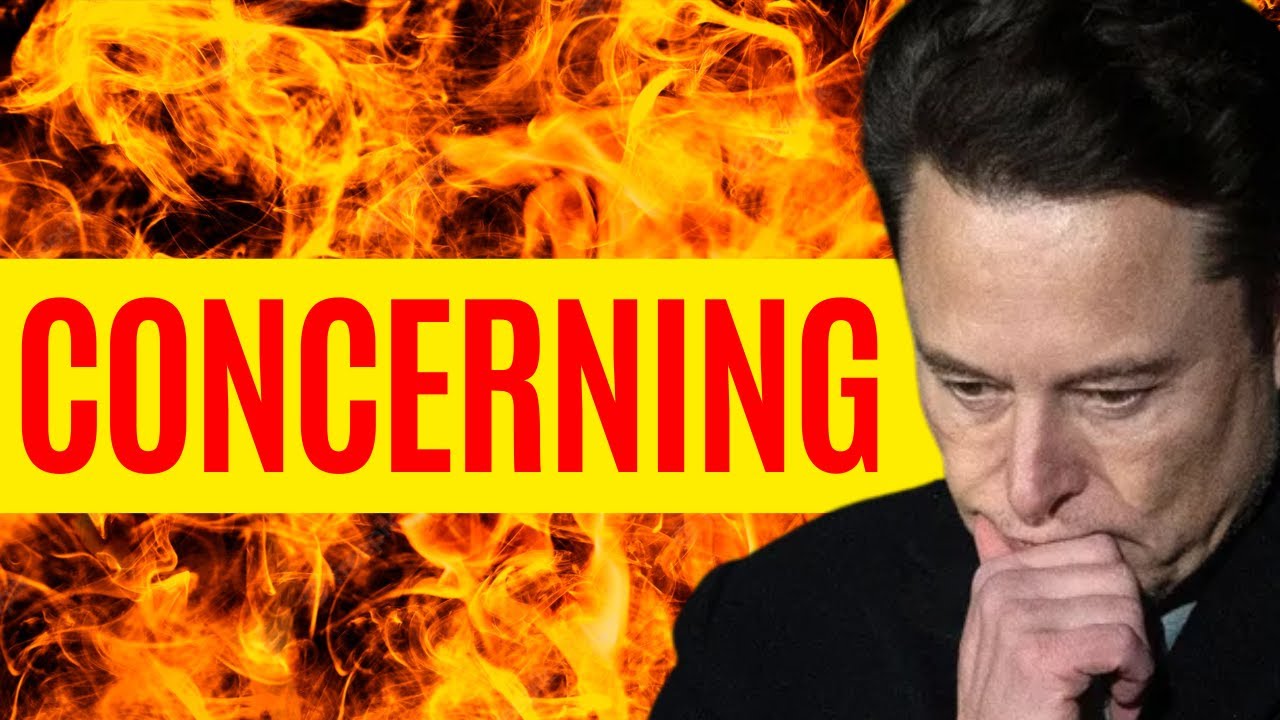Elon Just Said: Lots Of Current Year Similarities To 1929 (Which Started Worst Economic Shock)
Unleash Your Creative Genius with MuseMind: Your AI-Powered Content Creation Copilot. Try now! 🚀
In a recent statement that's sent ripples across the financial world, Elon Musk declared that the current year bears some eerie similarities to the tumultuous year of 1929. Let's dive into Musk's time-traveling insights and explore how the past may hold some lessons for our present and future.
The Great Depression: A Glimpse into History
The Great Depression, etched in history as the worst economic downturn, lasted from the infamous stock market crash of 1929 and dragged on relentlessly until 1939. The catastrophic plunge in the S&P 500, which saw it drop more than 80% in just a few short years, serves as a chilling reminder of the perils of unchecked financial instability.
At the heart of this statement lies an undeniable truth - nobody wants a repeat of the Great Depression. It's a sentiment that resonates with us all, and it's one that Elon Musk articulated in response to Kathy Wood's concerns. But why was Musk invoking the echoes of the past, and what parallels did he see between then and now?
Crypto Networks: A Shining Beacon in Troubled Times
In a world where the traditional banking system threatened to crumble under the weight of financial instability, cryptocurrencies such as Bitcoin and Ethereum stood resolute. They weathered the storm of bank runs and the threat to regional banks, showcasing their potential to be transparent, auditable, and resilient financial platforms with no central points of failure.
Musk's point was clear: regulators should have been more focused on the looming opaque points of failure within the traditional banking system. And he's not wrong; this concept holds significant merit. It's a stark reminder that, even in the face of crisis, innovation and adaptation can pave the way for a more secure financial future.
The Banker's Betrayal: A Tale of Silicon Valley Bank
The revelation that Greg Becker, the CEO of Silicon Valley Bank, sold millions of dollars' worth of shares just days before the bank disclosed a massive loss is nothing short of outrageous. This betrayal of trust raises questions about insider trading, and it's heartening to know that both the SEC and the Justice Department are now investigating this debacle. Accountability should be the bedrock of our financial systems, and this incident is a stark reminder of that.
The Art of Economic Anticipation
Kathy Wood's perspective offers a lens through which we can view the past and the present. The signs of looming crisis were, to some extent, clear for those who watched the banking industry closely. A short-grade sword of 19-fold in less than a year and falling deposits indicated an impending storm. The inaction of regulators becomes a point of contention, and it's a valid one. Why were these issues not addressed sooner?
However, the key difference between the Great Depression era and today is the ability of governments to act swiftly and decisively. Elon Musk's unwavering belief in Tesla's resilience in the face of a crisis highlights the adaptive nature of modern businesses. Tesla's ability to secure vital resources during the 2020 crisis and continue operations underscores the power of adaptation.
The Role of Banks in the Great Depression
If there's one thing to blame for the Great Depression, it might very well be America's weak banking system. While the Federal Reserve System existed since 1913, most American banks were small, individual entities that lacked the resources to withstand the panic of bank runs.
Banks failing meant credit froze, triggering deflation, a situation far graver than inflation. Deflation leads to businesses slashing costs, which often translates to layoffs. A domino effect emerges, where laid-off workers can't afford to buy goods and services, leading to business closures. This deflationary spiral can be a catastrophic economic quagmire.
Lessons Learned and Uncertainties Averted
In the current era, while similarities to 1929 exist, it's crucial to acknowledge the significant differences. Our banking system today is far more robust, and governments are prepared to intervene promptly to prevent systemic failures. Elon Musk's belief in Tesla's resilience isn't unwarranted, given the lessons learned from history.
In the end, history doesn't repeat itself verbatim, but it does offer us glimpses into the complexities of financial systems. Musk's invocation of 1929 serves as a call to vigilance and adaptability, rather than a doomsday prediction. As we navigate the uncharted waters of our time, let's use these lessons to ensure we build a financial system that's both stable and adaptable, ready to face whatever challenges lie ahead.
